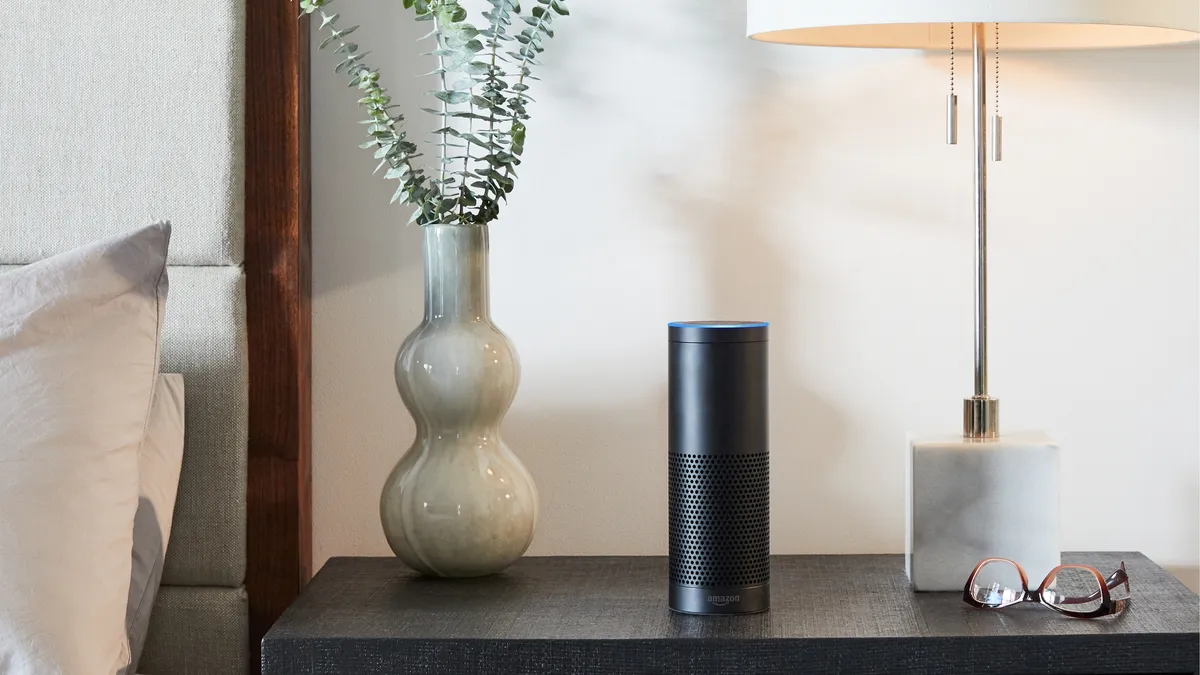Dive Brief:
-
About 74.2 million Americans are expected to use smart speakers at least once a month next year, 15% more than did so this year, with Amazon’s Alexa capturing 63.3% market share, down from 66.6% this year, according to a new forecast from eMarketer that was emailed to Retail Dive.
-
Meanwhile, eMarketer projected that voice commerce through smart speakers will reach $2.1 billion in 2018, equal to less than half of 1% of all U.S. e-commerce sales. The firm had previously estimated that about 31% of users would shop through their smart speakers next year, but has since lowered that projection to about 27%.
-
The study comes as Amazon this week admitted that a “human error” caused an Alexa user in Germany to accidentally receive recordings from a neighbor’s Alexa unit, according to a Reuters report.
Dive Insight:
Is the smart speaker market hitting a wall already? No, but change in market share and growth in use of smart speakers for shopping may be evolving more gradually than market watchers first thought.
At the outset of 2018, the sector was preparing for a watershed year, in which multiple new market entrants, heightened competition between Amazon’s Echo and Google Home, and an increasingly rich set of smart speaker applications seemed poised to lead to an explosion in smart speaker ownership and usage.
According to eMarketer’s figures, strong adoption of smart speaker is happening — 15% growth is nothing to be disappointed about. But, it still looks like a market that Amazon is dominating, with Google only accounting for 31% market share compared to Amazon’s more than 66%, according to eMarketer.
Reports from other research firms earlier this year suggested Google was shipping more of its Home units than Amazon was shipping Echo units, and that Amazon’s market share already had dipped below 50%. It should be noted that eMarketer does expect Amazon to continue losing share in this market.
The more pressing concern for the retail sector is that voice commerce may be evolving more slowly than many hoped. While about 37% of smart speaker users employed their devices for shopping-related activities this year, far fewer actually made purchases, and purchasing activity is not happening as quickly as expected, eMarketer said
Will that dampen the voice commerce ambitions of some retailers? Those who have been viewing voice commerce as a high priority, and have been emphasizing voice application development ahead of other projects are unlikely to slow down, with the base of smart speaker device users still growing at a double-digit rate. They may choose to put more attention on promoting their voice commerce apps to customers to drive usage. Doing so could help jump-start voice shopping, but it’s starting to looking like retailers should not expect a voice commerce revolution just yet.














